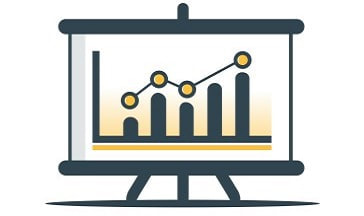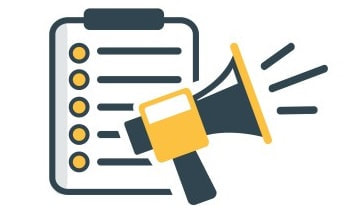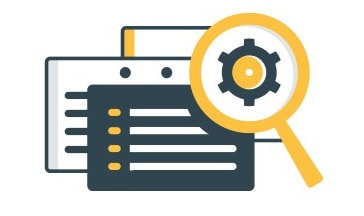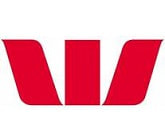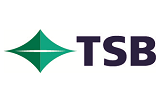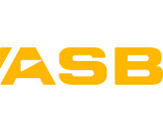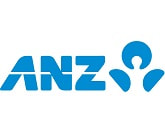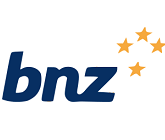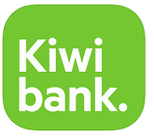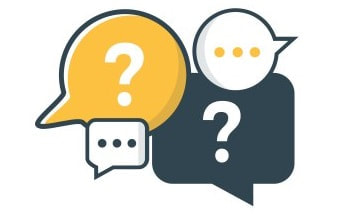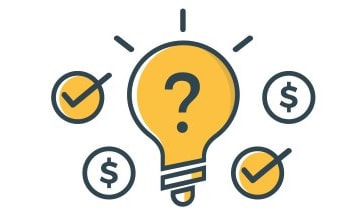Best Bank Accounts for Kids
We list the best bank accounts offering big interest on small balances, encouraging kids to save rather than spend.
Updated 20 July 2024
Opening a savings account for your kid is a great way to teach money management skills and start him or her on the way to financial success. The best savings accounts for kids have high interest rates and few fees — like the best savings accounts for adults. They also have tools for parents to help their kids set goals and watch their money grow.
But perhaps even more important than interest rates is the issue of access and control of the money. There have been many instances where children get control of their bank account and spend haphazardly while their parents know nothing. Buying a car on Friday and crashing it on Sunday is a recent example, as is withdrawing $2,000 and leaving it on a bus. To best protect you and your child from unwise spending or mishaps, make sure you understand the approval process for withdrawals and how much access and account information you will have. We explain this in more detail below.
Summary of Kids Bank Accounts
Our guide covers:
Opening a savings account for your kid is a great way to teach money management skills and start him or her on the way to financial success. The best savings accounts for kids have high interest rates and few fees — like the best savings accounts for adults. They also have tools for parents to help their kids set goals and watch their money grow.
But perhaps even more important than interest rates is the issue of access and control of the money. There have been many instances where children get control of their bank account and spend haphazardly while their parents know nothing. Buying a car on Friday and crashing it on Sunday is a recent example, as is withdrawing $2,000 and leaving it on a bus. To best protect you and your child from unwise spending or mishaps, make sure you understand the approval process for withdrawals and how much access and account information you will have. We explain this in more detail below.
Summary of Kids Bank Accounts
- All banks offer a fee-free account. This means no monthly account fees, free New Zealand ATM withdrawals and teller deposits.
- Interest rates range from 0% to 2.50%+ p.a., indicating a significant range in benefits and features.
- Generally, children under 7 years of age won't be given a debit card or EFTPOS card, and some banks restrict this to those under 12 years of age.
- Beyond the issue of interest is the issue of control of money. Parents have a range of access options, and the ability to see the child's transactions in real-time. Having your child's bank account linked to yours means you can monitor the transactions and track their movements. But, if you approve them to be 'Independent', you won't have any access to their bank account transactions.
- There have been many instances where children get control of their bank account and spend haphazardly without parental knowledge. To best protect you and your child from unwise spending, make sure you understand the approval process for withdrawals.
Our guide covers:
Warning: Read This First - A MoneyHub user describes losing access to her son's bank account transactions by permitting him to be 'independent'
Our son had a linked account to my Westpac account from about the age of seven. This worked well - I could virtually track where he was - Burger King, the dairy or wherever. When he was 13, he wanted to open up his own bank account with ANZ. I had to sign the permission forms, and when they said 'do you want him to be independent?', I said yes. A week after he joined up with ANZ, he decided to stop using his Westpac card and move everything to ANZ. I was accustomed to knowing exactly what was going in and out of his account, but now I had no access, let alone account and transaction visibility. We lost control of him afterwards for a little while, and not having insights into his spending made us worry more.
Knowing what I now know, I would not recommend giving a young child such independence. At the time I thought he could do no wrong, but that's wasn't to be. You have to maintain a relationship with your teen too, so it is a difficult one to go back on after you give up the banking authority!
- Katie, Auckland
Our son had a linked account to my Westpac account from about the age of seven. This worked well - I could virtually track where he was - Burger King, the dairy or wherever. When he was 13, he wanted to open up his own bank account with ANZ. I had to sign the permission forms, and when they said 'do you want him to be independent?', I said yes. A week after he joined up with ANZ, he decided to stop using his Westpac card and move everything to ANZ. I was accustomed to knowing exactly what was going in and out of his account, but now I had no access, let alone account and transaction visibility. We lost control of him afterwards for a little while, and not having insights into his spending made us worry more.
Knowing what I now know, I would not recommend giving a young child such independence. At the time I thought he could do no wrong, but that's wasn't to be. You have to maintain a relationship with your teen too, so it is a difficult one to go back on after you give up the banking authority!
- Katie, Auckland
Four Must-Know Kids Bank Account Facts
Every bank offers kids bank accounts, but what they offer ranges. Use the tips below to find the best option for your son or daughter:
Know This: If you have a child and want to combine a bank account with pocket money and financial literacy, we suggest considering SquareOne. This New Zealand-based app launched in 2021 and offers specific benefits for children and their parents - our review has more details.
- To encourage savings, get the best interest rate - some banks offer next to 0%, others offer between 1% and 4%. When kids see interest earned on their savings and paid into their account, it encourages them to save more.
- Understand that parental access is important, so make sure you have the right level - if you open the account solely in your child's name and sole control, you won't be required to give approval for withdrawals as they are the only person the bank needs to hear from. This means your child has free reign, which may be too much too soon. If this the case, make sure the account has some restrictions on independence, or set yourself up as a co-signatory.
- Don't have a branch nearby? You can act as the bank - time-saving parents direct pay pocket money etc into their children's bank account, rather than visit a branch. They also convert piggy bank savings to bank deposits. This makes visiting a bank branch far less necessary.
- Don't forget to switch when your child is over 18 or 19- some banks will start charging account holders as soon as they become an adult - avoid this by looking at student bank accounts or best bank accounts.
Know This: If you have a child and want to combine a bank account with pocket money and financial literacy, we suggest considering SquareOne. This New Zealand-based app launched in 2021 and offers specific benefits for children and their parents - our review has more details.
Top Kids Bank Accounts
Every bank in New Zealand offers a specific bank account for children, but the benefits and access levels for parents vary. We've ranked the best bank accounts below.
The Co-operative Bank Youth Account - Best Interest Rate
- Benefits – No transaction, account or service fees, 5.55% p.a. interest on balances up to $4,000 and a range of parental access options make The Co-operative Bank’s Youth account the best kids’ bank account option currently available.
- EFTPOS and Debit Cards: EFTPOS cards are available from age 7, with adult signatory’s consent. Debit Mastercard is available to customers aged 15 or over and a parent or guardian must complete an indemnity form.
- Account balance interest? Yes – 5.55% p.a. on balances of $0 - $4,000. For every $1 above $4,000, the interest rate is 1.85% p.a. Interest is calculated daily and paid monthly
- Minimum age: None; there are two accounts - Dollars and Sense account (for 0-12 year olds) and the Dosh account (for 13-17 year olds).
- Does the account have an app? Yes - The Co-operative Bank's app is downloadable for iOS or Android.
- Branches? Limited - see this list for current locations
- Know more or sign up: Visit The Co-operative Bank's Youth Accounts for more information
Heartland Bank Direct Call Savings Account
- Benefits: Heartland has one of the best reputations for paying above-market interest on savings. Their Direct Call Saving Account doesn't offer a debit or EFTPOS card, but it's a perfect place for children to save. Heartland allows unlimited withdrawals to one nominated account which does not need to be a Heartland bank account.
- EFTPOS and Debit Cards: None
- Parent Access: None
- Account balance interest? Yes - 4.60% p.a. on any balance. Interest is calculated daily and paid monthly
- Minimum age: None
- Does the account have an app? Yes - Heartland Bank's app is downloadable for iOS (rated 2.3/5) or Android (rated 2.7/5).
- Branches? Limited - see this list for current locations
- Know more or sign up: Visit Heartland Savings Accounts for more information
- Important: As stated above, Heartland account doesn't offer a debit card so account holders will need to select another bank account if they want to make withdrawals and/or use a debit or EFTPOS card.
Westpac Youth Account - Best Parental Access Options
- Benefits: Free fees, reasonable interest and robust levels of parental access options make Westpac's Youth Account options popular with kids and parents alike. To encourage responsible spending (as well as saving), an EFTPOS card can be only issued with the parents’ or guardians' permission for any child under 16.
- EFTPOS and Debit Cards: EFTPOS cards are available from age 12 (with parental approval), with a Debit card available from age 16. Until the age of 12, children can only operate savings accounts.
- Parent Access: Westpac explains it best:
- For kids under 12: Parents have full control of the account
- For kids 12 - 15: Parents have the option to give the child responsibility of the account, but can also retain access.
- For kids 16+: Teens can open their own account without parent permission, but parents can also have access.
- Account balance interest? Yes - 2.70% p.a. base rate for Simple Saver savings account, and with 4.50% p.a (1.00% p.a base interest rate plus 3.50% p.a. bonus interest rate) for Westpac Bonus Saver account. The bonus rate will incur if on the last business day of the month, the account balance is $20 greater than on the last business day of the month prior. For example, if your balance was $560 on Friday March 31 and $600 on Monday April 30, the bonus interest would be earned. The $20 excludes interest earned on the account.
- Minimum age: None; there are two accounts - Westpac Bonus Saver and Simple Saver, and children over 12 have the option to apply for an EFTPOS card and open an Everyday banking account.
- Does the account have an app? Yes - Westpac's app is downloadable for iOS (rated 2.4/5) or Android (rated 3.5/5).
- Branches? Around 150 - see this list for current locations
- Know more or sign up: Visit Westpac Youth for more information
TSB Youth Account
- Benefits: Free fees and interest, with a fully transactional account for kids 7 and older.
- EFTPOS and Debit Cards: EFTPOS cards are available to parents/guardians of the account for child when below 7 years of age. From age 7, EFTPOS cards are issued either to the child or parent.
- Parent Access: For children under 7, accounts are set up under a parent or guardian or in the child’s name. For children 7 and older, accounts can be set up under a parent or guardian or in the child’s name.
- Account balance interest? Yes - 4.20% p.a. Interest is earned monthly and paid quarterly.
- Does the account have an app? Yes - TSB's app is downloadable for iOS (rated 3.4/5) or Android (rated 3.8/5).
- Branches? Limited - see this list for current locations
- Know more or sign up: Visit TSB Youth Account for more information
Best of the Rest - Interest earning (and zero interest earning) kids bank account options:
The list below shows options from traditional banks, which includes specific savings account for children.
|
ASB Headstart Kid’s Bank Account (Savings only)
Interest rate: 5.00% p.a More details: Accounts for kids |
ANZ Serious Saver Account (Savings only)
Interest rate: 3.75% p.a Premium Interest: 0.45% pa - you need to make no withdrawals and deposit $20 or more on or before the last business day of the month. More details: Accounts for kids |
Disclaimer: We have excluded the fee-free Kids Saver Account from Unity Money because Unity Money is not a registered bank.
Kids Bank Accounts - Frequently Asked Questions
We've listed a number of popular questions to make the decision process easier. If you're unsure about anything, ask the bank before going any further or signing up.
What do I need to open a bank account for my child?
- Depending on which bank you want to join, you will need to fill out forms or complete an application online.
- You may need to book an appointment at the bank before you visit - some banks require this (Kiwibank and Westpac being examples), whereas others don't.
- If you’re a new customer and you and your child don't have an existing relationship with the bank, you will need to bring ID and a proof of address (i.e. passport, driver's licence and energy bill).
- You will also need to bring the child's IRD number so that interest earnings are taxed at the right tax rate.
Should I open a kids account with my bank, or look elsewhere?
- It's a common question, and we believe that picking the best kids bank accounts helps them to experience the benefits of saving and encourages good behaviour.
- There is no better way to encourage great saving habits by opening up a bank account that pays a decent rate of interest on savings. Kids will be inspired to save knowing that their money can 'work for them' year after year. If the best account isn't currently offered by your bank, your child is still eligible to open an account.
- The worst type of kids bank account is one which has a near-to 0% interest rate, and sadly, many do. For example, a 0.05% p.a. interest rate on a $500 balance would earn 20 cents a year (after tax), hardly inspiring to any child and unlikely to encourage good savings habits.
Will I, as a parent, need to give permission for a withdrawal to be made?
It depends on what the terms and conditions of the bank account are. Parents can do any one of the following:
If you are followed option 2, 3 or 4, you have control and will need to approve any withdrawal. But if your child has sole control (as the case is in option 1), they can do whatever they want with the money, whenever they like, without warning.
- Open an account solely in their kids' names, or
- Open an account with themselves as sole signatories. or
- Open an account with themselves and the child as joint account holders, or
- Open an account in their own names but on the understanding that the money is for a child.
If you are followed option 2, 3 or 4, you have control and will need to approve any withdrawal. But if your child has sole control (as the case is in option 1), they can do whatever they want with the money, whenever they like, without warning.
Who owns the money in my child's bank account?
In general, the account holder owns the funds in an account. Per the Banking Ombudsman:
Issues often arise when there is family separation and one parent becomes unable to access their child's bank account. This can see money go missing or be transferred without prior discussion, which can create tension.
- If an account is in a child’s name, the child owns the funds.
- If a parent and a child are joint account holders, the parent and child are joint owners of the funds.
- If a parent is a signatory to an account, but not an account holder, the parent does not own the money (although he or she has control over how the account is operated while still a signatory).
- A child who is the sole account holder can, on reaching 18, change or remove the signatories and operate the account alone.
Issues often arise when there is family separation and one parent becomes unable to access their child's bank account. This can see money go missing or be transferred without prior discussion, which can create tension.
Does my child need a transaction account and a savings account, or just one?
It depends on the savings goals, but in most cases having both accounts helps with saving goals. Westpac, for example, offers two savings accounts - the Westpac Bonus Saver and Westpac Simple Saver. Once a child turns 12, they have the option to apply for an EFTPOS card, but to do this they need to open an Everyday banking account.
What is the minimum age for kids to get an EFTPOS card or Debit card?
It depends on the bank. For example, ASB makes Visa Debit cards available to customers over 13 years of age. Kiwibank restricts access to those less than 15 years of age.
Do kids pay tax on interest earnings?
Yes - every New Zealand resident pays tax on interest earnings. To ensure your child pays the right amount of tax, you'll need to register them with the IRD and provide the bank with their IRD number.
Are international fees waived for kids like other bank fees are?
No - making a purchase in a foreign currency, or withdrawing from an ATM, will incur standard bank charges. Our guide to overseas bank fees for debit cards explains these in detail.
How do I find my local branch?
The easiest way, beyond the bank's website, is to Google your bank's name and the area you live in. You'll get a Google map showing the branches around you as well as their opening hours.
How long does it take for an EFTPOS card or debit card to arrive?
Among most New Zealand banks, the time is usually within five business days from the date your bank account was approved.
Are internet and mobile banking safe?
Yes - but as with anything online, protecting your details from fraud is essential. To do this:
- Never share or send your online/mobile banking information.
- If you use an app on your phone, make sure you regularly update it so that you have the latest security features.
- Delete any unusual emails about 'password recovery' or 'fraud alerts' - these are likely to be scams. If in doubt, contact your bank on its official number.

